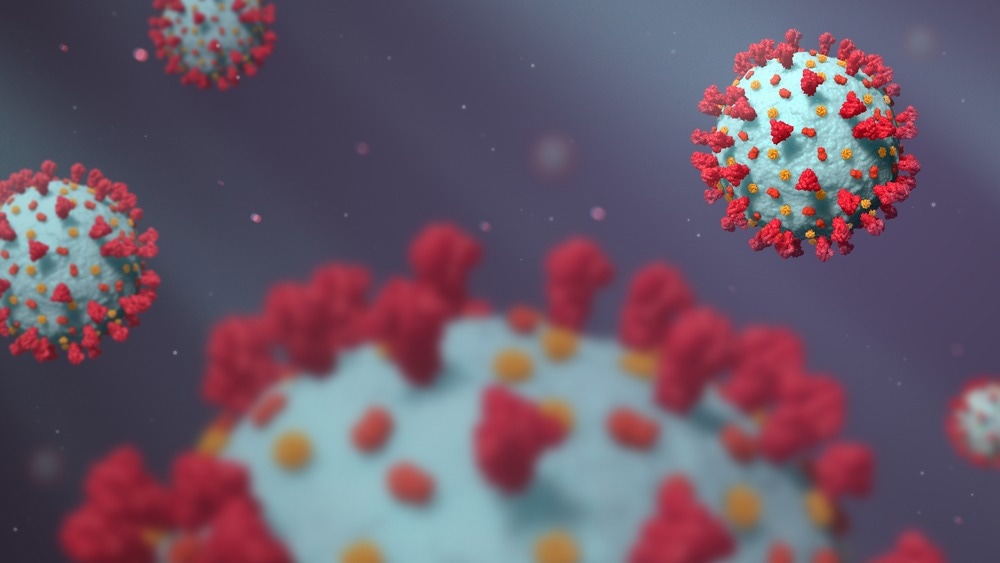In a recent article published in Scientific Reports, researchers performed immunoglobulin (Ig)M and IgG epitope mapping against 487 severe acute respiratory syndrome coronavirus 2 (SARS-CoV-2) peptides. These peptides encompassed four main structural proteins of SARS-CoV-2, viz., spike (S) glycoprotein, envelope (E), nucleocapsid (N), and membrane (M) proteins.
 Study: Linear epitope mapping of the humoral response against SARS-CoV-2 in two independent African cohorts. Image Credit: MedMoMedia/Shutterstock
Study: Linear epitope mapping of the humoral response against SARS-CoV-2 in two independent African cohorts. Image Credit: MedMoMedia/Shutterstock
Background
Investigating humoral immune responses in ethnically diverse populations accounting for varying coronavirus disease 2019 (COVID-19) clinical profiles could help better define the correlates of protection. Further, it could aid the development of more effective serological diagnostic assays and COVID-19 vaccines adapted for such populations. Due to their limited availability and inefficacy against novel SARS-CoV-2 variants (e.g., Omicron), the COVID-19 pandemic continues to wreak havoc globally after almost three years since it began.
About the study
In the present study, researchers performed an extensive antibody epitope mapping study among reverse transcription-polymerase chain reaction (RT-PCR) confirmed SARS-CoV-2-infected patients from two African countries, Senegal and Madagascar. They also determined the primary B cell epitopes recognized by these SARS-CoV-2-infected African patients.
The study population comprised 65 and 16 (total 82) SARS-CoV-2-infected patients and 32 and 10 (=41) uninfected individuals from Senegal and Madagascar, respectively. The researchers collected serum samples from these two groups and assessed whether their varying IgM and IgG epitope distributions explained their different COVID-19 clinical profiles. Further, they compared the results with previous studies from Europe, Asia, and the United States of America (USA).
The serum samples used in the study belonged to patients of distinct ethnic origins and varying disease profiles, viz., asymptomatic, symptomatic, and severe COVID-19.
Study findings
The study analysis confirmed that all the identified IgG epitopes represented immunodominant epitopes. Previous studies from different continents have similarly identified five and eight IgG epitope regions in the N and S domains. Most immunodominant IgG epitopes were nested outside the receptor-binding and N-terminal domains (RBD and NTD) regions of the SARS-CoV-2 S protein, the known hub for most SARS-CoV-2 mutations. Interestingly, many of these immunodominant peptide epitopes are proven targets of neutralizing antibodies, e.g., S139/140, S165, S204, and S287/288. Likewise, the researchers found several immunodominant epitopes for IgM, perhaps because they collected serum samples 10 to 12 days after symptom onset. However, they found no immunodominant epitopes in the SARS-CoV-2 E protein in this study, as in previous studies.
Furthermore, the observed humoral responses to SARS-CoV-2 in people from Madagascar and Senegal were quite comparable, with some differences due to varying patient profiles at sampling time. Samples belonged to patients with early or late-stage SARS-CoV-2 infections. Accordingly, asymptomatic patients had more IgM epitopes, and those with severe COVID-19 shifted towards IgG epitopes due to prolonged SARS-CoV-2 exposure. Based on IgG and IgM scores, even previous studies have demonstrated a stronger immune response by severely ill COVID-19 patients compared to their asymptomatic or symptomatic counterparts.
Another important observation made by the researchers was that some severely ill patients no longer had detectable SARS-CoV-2 load at the time of study sampling. Also, those with a higher score of neutralizing antibodies had a lesser viral load, suggesting their humoral response perhaps eliminated the virus but could not help them survive. Patients from the severe group were older than the symptomatic and asymptomatic groups, with higher susceptibility to COVID-19.
Conclusions
Overall, the present study analysis confirmed that the landscape of the humoral immune response of African patients to SARS-CoV-2 was comparable to that in other continents, indicating minimal or no effect of the diversity in ethnicities and genetic background of these populations.
A pool of 36 peptides nested inside the SARS-CoV-2 S and N structural proteins exhibited the highest reactivity to neutralizing antibodies. In particular, patients’ IgM, IgM/IgG, and IgG were mapped to nine, two, and 25 SARS-CoV-2 peptides, respectively. The identified IgG immunodominant epitopes were similar to those described in Asian, European, and USA studies. These immunodominant epitopes could aid the development of novel and more effective vaccine candidates and rapid serological diagnostic assays.
The present study did not determine the role of the T cells, a critical component of the humoral immune response to SARS-CoV-2. The lack of adequate T-cell response induction led to the death of some severely ill patients who mounted a suitable humoral response. It could be interesting if future studies identify peptides recognized by T cells in these African patients.